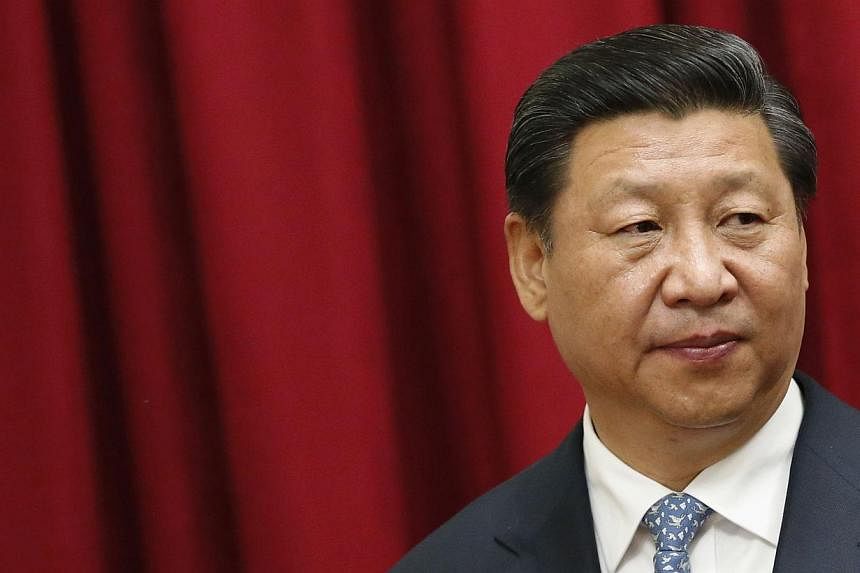BEIJING (Reuters) - China's economy is stable and the risks that it faces are not that scary, President Xi Jinping said on Sunday in a speech at the Asia-Pacific Economic Cooperation (Apec) CEO Summit.
Mr Xi told the meeting of business executives that even if China's economy were to grow 7 per cent, that would still rank it as one of the world's fastest-growing economies. Underlining the country's growing clout as an exporter of capital, he said China's overseas direct investment was expected to hit US$1.2 trillion US$1.2 trillion (S$1.55 trillion) in the next decade.
China's economy, the world's second-largest, has had a rocky year. Growth slid to a low not seen since the 2008/09 global financial crisis in the third quarter dragged by a housing slowdown, softening domestic demand and unsteady exports. "Some people worry that China's economic growth will fall further, can it climb over the ridge?" Mr Xi said. "There are indeed risks, but it's not so scary. Even at growth of around 7 per cent, regardless of speed or volume, (we) are among the best in the world," he said, noting that China's economy remained "stable".
The remarks from Mr Xi came a day after data showed annual growth in Chinese exports and imports cooled in October, in another sign of fragility in the economy that could prompt policymakers to take further action to stoke growth.
To shore up activity, policymakers have loosened monetary and fiscal policies since April to ensure that the economy can grow by around 7.5 per cent this year.
Regional governments have accelerated spending on some infrastructure projects and abolished limits on the number of homes that Chinese can buy. The central bank has also injected short-term loans into banks to increase credit supply, and cut mortgage rates for some home buyers.
Yet the results yielded have not been as good as some had hoped, fuelling speculation that China may have to cut interest rates or the reduce the amount of deposits that banks set aside as reserves - moves Beijing has denied are on the cards.
Mr Xi, who would sign off on any interest rate cut in China alongside the country's elite decision-making Politburo, did not comment on the policy outlook, but stressed that his government was focused on reforms and that China was open for business.
After three decades of almost uninterrupted double-digit growth, China's economy has lifted several hundred millions of Chinese from abject poverty, but also polluted the country's air, land and waterways.
The destruction of China's environment and a yawning income gap has led Chinese authorities to promise to enact sweeping social, financial and economic reforms in the country that would be the most ambitious in three decades.
"These reforms are gradually being put into effect project by project," Mr Xi said. "Once the bow is drawn, the arrow cannot be put back in the quiver; we will resolutely deepen reform."
Mr Xi also sought to address concerns that China's growing economic and diplomatic prowess could constitute a threat beyond its borders, saying that China is willing to have friendly relations with its neighbours.
China has territorial disputes with many of its neighbours and has been much more aggressive in enforcing its claims in recent years. "China's development brings enormous opportunities and benefits to the Asia Pacific and the world, and the business opportunities are lasting and limitless," he said.

